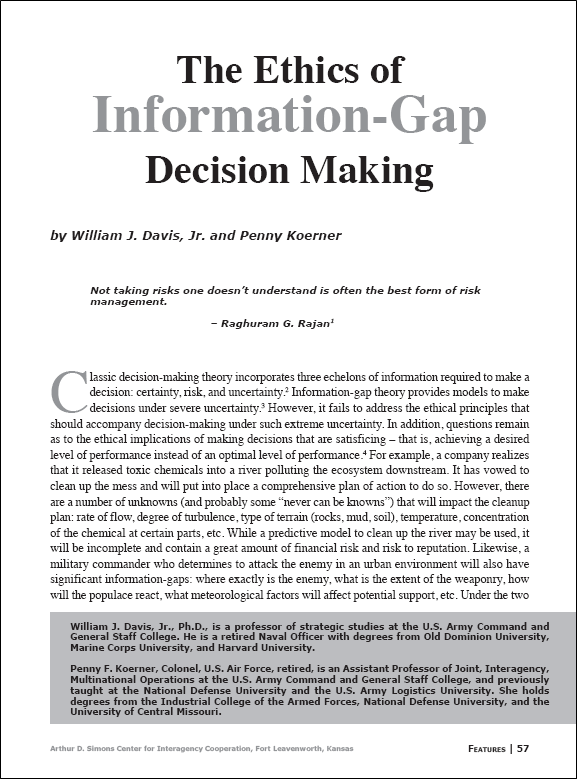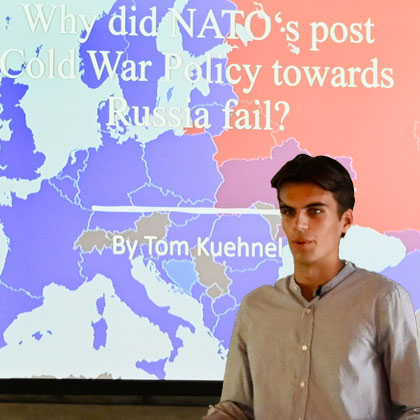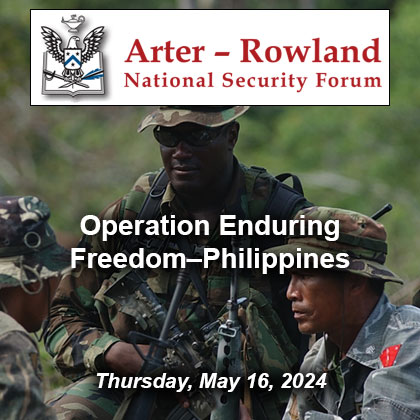Featured Article: The Ethics of Information-Gap Decision Making
Featured article:
The Ethics of Information-Gap Decision Making
by William J. Davis, Jr. and Penny Koerner
Not taking risks one doesn’t understand is often the best form of risk management.
– Raghuram G. Rajan
Classic decision-making theory incorporates three echelons of information required to make a decision: certainty, risk, and uncertainty. Information-gap theory provides models to make decisions under severe uncertainty. However, it fails to address the ethical principles that should accompany decision-making under such extreme uncertainty. In addition, questions remain as to the ethical implications of making decisions that are satisficing – that is, achieving a desired level of performance instead of an optimal level of performance. For example, a company realizes that it released toxic chemicals into a river polluting the ecosystem downstream. It has vowed to clean up the mess and will put into place a comprehensive plan of action to do so. However, there are a number of unknowns (and probably some “never can be knowns”) that will impact the cleanup plan: rate of flow, degree of turbulence, type of terrain (rocks, mud, soil), temperature, concentration of the chemical at certain parts, etc. While a predictive model to clean up the river may be used, it will be incomplete and contain a great amount of financial risk and risk to reputation. Likewise, a military commander who determines to attack the enemy in an urban environment will also have significant information-gaps: where exactly is the enemy, what is the extent of the weaponry, how will the populace react, what meteorological factors will affect potential support, etc…
Read the full article
The Ethics of Information-Gap Decision Making PDF
Download the complete edition
IAJ 9-3 (2018) pdf
IAJ 9-3 (2018) ePub
William J. Davis, Jr., Ph.D., is a professor of strategic studies at the U.S. Army Command and General Staff College. He is a retired Naval Officer with degrees from Old Dominion University, Marine Corps University, and Harvard University.
Penny F. Koerner, Colonel, U.S. Air Force, retired, is an Assistant Professor of Joint, Interagency, Multinational Operations at the U.S. Army Command and General Staff College, and previously taught at the National Defense University and the U.S. Army Logistics University. She holds degrees from the Industrial College of the Armed Forces, National Defense University, and the University of Central Missouri.

Posted: September 26, 2018 by Simons Center
READ THE LATEST UPDATES FROM THE SIMONS CENTER
"*" indicates required fields


